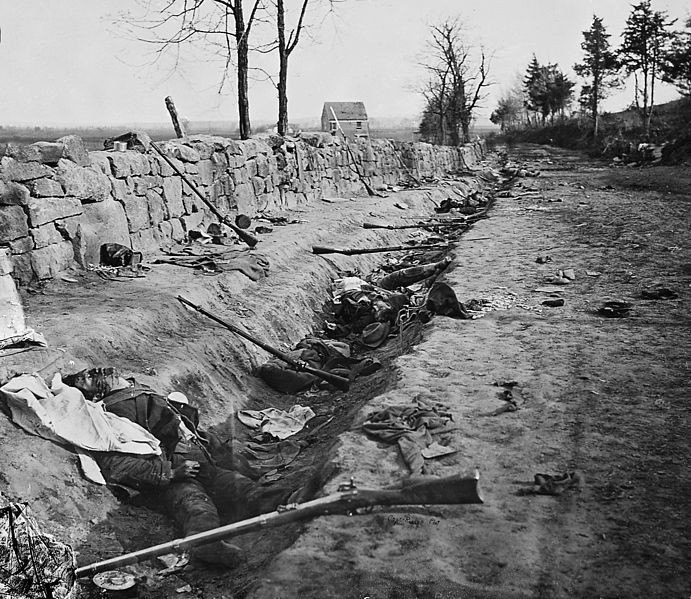
Astronomer Don Olson and researcher Laurie E. Jasinski from Texas State University published a study this month in Sky and Telescope magazine that argues a location of the moon in the night sky may have played a fateful role in United States history, according to CNN.
Confederate General Stonewall Jackson was shot by other Confederate soldiers when returning to camp one spring night in 1863, after Jackson and a party of officers had gone out on a scouting mission. Men of the 18th North Carolina Infantry Regiment fired on them when they mistook them for members of the Union army. 150 years after the incident, the two researchers reconstructed the scene using moon phase records and maps, and say the moon's position that night would have made it difficult for the 18th Infantry Regiment to identify Stonewall Jackson and the other officers.
"The 18th North Carolina was looking to the southeast, directly toward the rising moon," they wrote, adding that the moon would have been 25 degrees above the horizon just then. "The bright moon would've silhouetted Jackson and his officers, completely obscuring their identities." Their findings, they say, "partially absolve the 18th North Carolina from blame".
The incident, which occurred at the Battle of Chancellorsville, Va, on May 2, 1863, was one of the war's turning points. At the time, the momentum seemed to be on the side of the Confederates. The Union army had been routed that afternoon by a "flank attack" authored by Stonewall Jackson, who in hopes of cutting off the Union's retreat, kept his troops fighting into the night. The researchers point to written anecdotes making reference to the full moon that night, which allowed combat to continue even after the sun had gone down.
The Confederacy won the battle. But a wound from this volley of friendly fire which hit General Jackson in his left arm forced its amputation. On May 10, he died from complications related to it.
The major who ordered his men to fire, John D. Barry, died two years after the end of the war, at age 27. Barry's family was said to believe that depression and guilt over his role in Jackson's death was a direct consequence of his own early death.
"When you tell people it was a bright moonlit night, they think it makes it easier to see," says Olson. "What we are finding is that the 18th North Carolina was looking directly toward the direction of the moon as Stonewall Jackson and his party came riding back. They would see the riders only as dark silhouettes."
© 2025 Latin Times. All rights reserved. Do not reproduce without permission.




